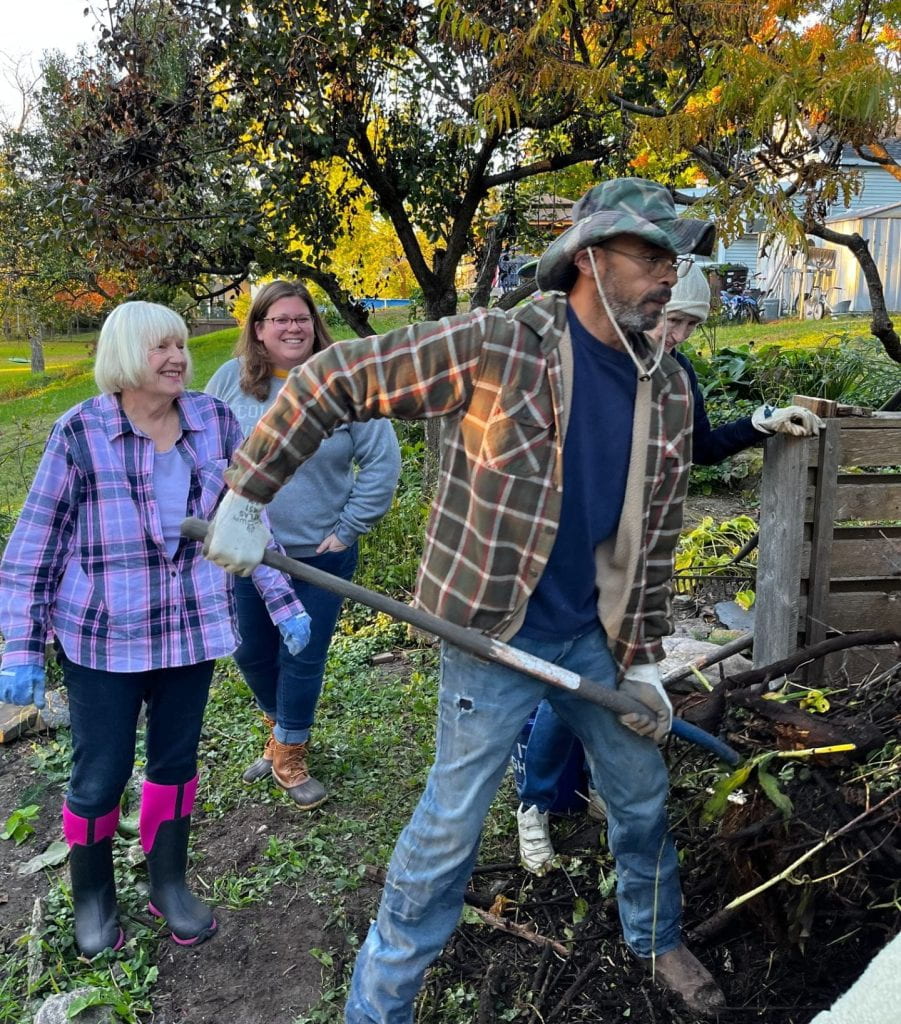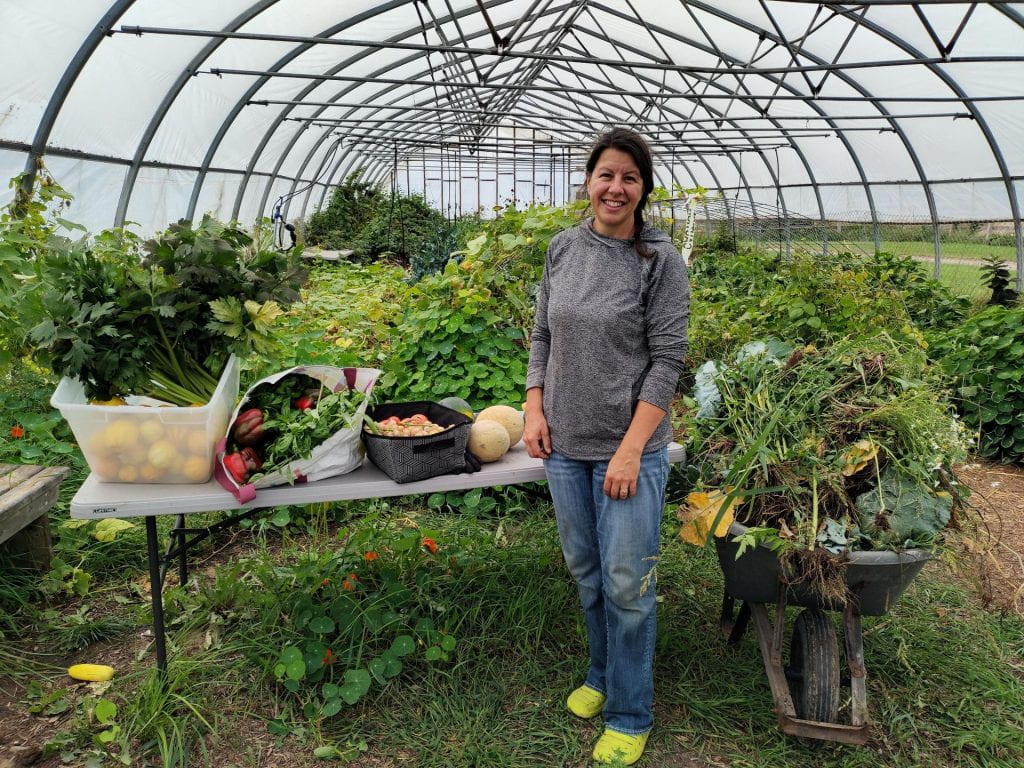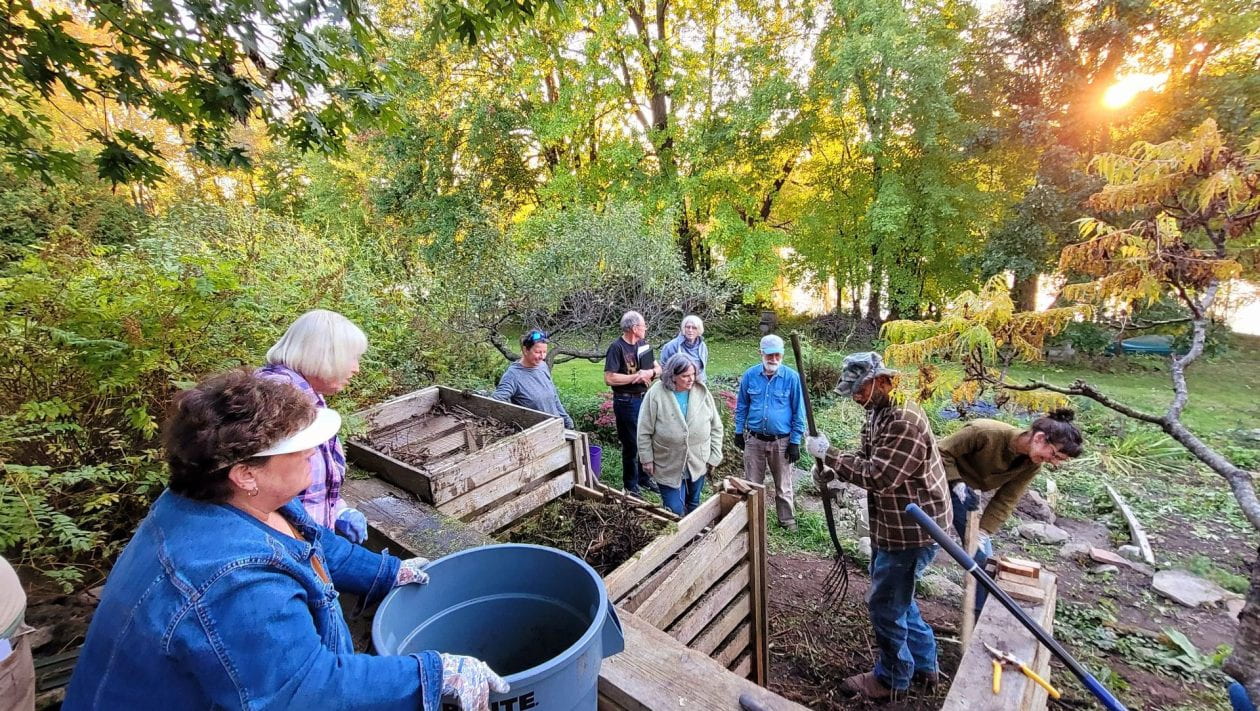In mid September, a group of 10 people set out on a journey to become Master Gardener Volunteers (MGV). Upon completion, this extraordinary group will represent CCE in the community and use their gardening knowledge and resources to help residents thrive.
The MGV training can be executed in many ways and this year’s training is a hybrid course, with outside readings, videos, and homework as well as weekly in-person sessions where trainees dive deeper into one or two topics with an expert. The training continues through November, and will culminate with each person presenting an Action Project, which will address a need in their community.
To bring the wide world of tending plants to life in the classroom, we’ve enlisted the knowledge and expertise of people from across New York State. We’ve been grateful to welcome local guest speakers like Carlene Doane, Executive Director of GardenShare, a non profit that tackles food insecurity in our county. We also learned from Dr. Aswini Pai, an ecologist and ethnobotanist at St. Lawrence University, who shared her knowledge about plant biology for gardeners, including what plants need and what processes occur within them.
From Cornell University, we welcomed Dr. Amara Dunn, who presented about recognizing and attracting beneficial insects to our gardens, and Ashley Helmholdt, who serves as Adult Program Leader for Cornell Garden-Based Learning. Ashley manages the MGV program for New York State, which includes over 50 counties and 2,262 volunteers! She also coordinates support for counties like ours who deliver the Seed to Supper program to residents.
Our most recent session included a hands-on workshop at the home of Janet Lomastro in Potsdam. Janet has perfected the “batch composting method” for home gardeners and has a decade of experience teaching hands-on composting workshops. Trainees learned about the basics of decomposition, and then assembled a fast-acting compost pile using branches, garden waste, water, and fresh grass clippings. Under the right conditions, a pile like this will heat up quickly and decompose within about 6 weeks!

In the coming weeks, Sue Gwise, Consumer Horticulture Educator at CCE Jefferson county, will discuss woody plants in our landscapes. From our own group of established MGV, Ray Bowdish of the WISER Center will present about Integrated Pest Management and Loni Recker will speak about her work leading Ogdensburg’s Youth Gardening Club.
Laura McDermott of CCE Washington County will be our guest speaker on home-scale cultivation of fruit, and Megan Pistolese of SLELO Prism will alert the group to invasive species to watch out for in the garden, and will recommend native alternatives to invasive landscaping plants.

Our Master Gardener training is intensive and covers a lot of ground! In the first month of the course, the group members have shown themselves to be eager and attentive learners. They are putting in the work to become authorities on gardening and horticulture for the benefit of their community. Stay tuned for my next blog post where I will share some of the projects our newly trained MGVs have worked on this autumn.
Erica LaFountain is Community Horticulture Educator for St. Lawrence County. She has a background in organic vegetable farming, gardening, and orcharding and has a homestead in Potsdam, NY.
